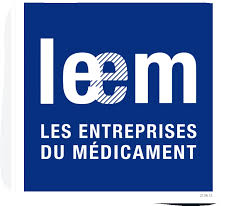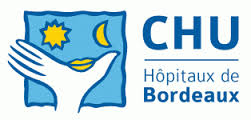With clinical R&D spend approaching €5 billion, France is the third-largest trials market in Europe (just behind the UK and Germany). To put this into perspective, 2011 domestic drug production was worth around €19.5 billion (fifth in Europe behind Germany, Italy, The UK and Ireland).
The French pharma sector employs 104,000 people – just behind Germany – and is considered the largest pharmaceutical market in Europe (at around €28 billion). Branded drugs have the lion’s share, with generics only accounting for just over 13% – one of the lowest shares in Europe.
This year will see the publication of the latest survey into the attractiveness of France for international clinical trials – it also sees the publication of a new Whitehall Training GCP course aimed specifically at the French trials sector.
Since 2002, the French Association of Pharmaceutical Companies (LEEM) has surveyed the key players in the French market every other year to find out about their research. The 2012 survey looked at 30 companies representing 68% of the French market. The research involved 79 countries, 420 Phases I/II, II and III studies, 246,895 patients and 32,965 centres.
The 2012 survey showed Europe losing ground in terms of international competition to North America and Latin America. This survey also showed an increase in the number of countries involved in trials, resulting in fewer patients recruited per trial in Europe. For Phase III trials in particular, the number of patients almost halved since the previous survey.
Over the period from 2010 to 2012 in France, the number of trials fell by 13%, with a 21% drop for industry-sponsored trials, compared with an 11% fall for academic clinical trials. However, the survey seems to show that France remains a competitive and attractive location for international trials and trial approval times continue to improve.
The number of trials in paediatrics and geriatrics has strongly increased in this survey. France is also strong in oncology research and is the European leader in research on orphan diseases.
However, the picture is not 100% positive. Approval times by the French regulatory agency for drugs (Agence Nationale de Sécurité du Médicament et des Produits de Santé - ANSM) may have fallen, but Ethics Committee assessment times have increased.
According to the 2012 survey, France participated in 7% of global Phase I trials and 17% of European Phase I trials – putting it behind Switzerland, Germany, and the UK.
Around 43% of the 994 Phase II and III trials conducted around the world with European involvement, were offered to France. Ultimately, only 33% of all trials with European involvement actually took place in France. Sixty trials were declined by the French affiliate for practical reasons and the parent company changed its mind in a further forty.
In 2005, the French Government identified that the country was becoming less attractive as a location for clinical research. In response, it strenghtened its commitment to building and developing public–private partnerships. In 2007, the National Centre for Management of Clinical Trials on Health Products (GIP CeNGEPS) was founded to boost the productivity and performance of industry-sponsored clinical research in France.
France’s Ministry of Health initiated a major reform of pharmacovigilance and medicinal products policy with the aim of increasing related expertise and making the links between experts and manufacturers more transparent.
Drug price setting is established by the Economic Committee on Healthcare Products (Comité Economique). A drugs’ efficiency is the main factor used in setting the reimbursement level. This has become even more important with a significant increase in the efficacy threshold that must be met before innovative drugs can be added to the reimbursable drugs list.
The Health Ministry makes the final decision regarding whether or not the drug will be registered on the list of reimbursable medicines. This registration is valid for 5 years. At the end of this period or at any time when significant new information becomes available, the efficacy data is reviewed.
France is certainly an extremely attractive proposition for clinical trials although it is vital that companies appreciate the way the ICH GCP rules have been interpreted into French law. Whitehall Training has just published a French GCP course tailored to the specific French regulatory framework. The course was developed in conjunction with CHU de Bordeaux and is currently being offered in French.
Whitehall training also has an International French-language GCP course, for French language speakers who are working on trials outside French jurisdiction.










